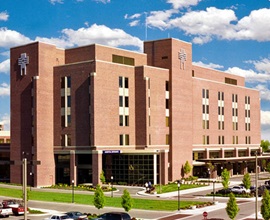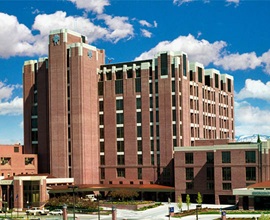Nursing Research Program Helps Fuel Dedication to Patient Care

Professional development can reinvigorate someone’s passion for their work. A nursing research fellowship program at St. Luke’s takes that to another level by also providing opportunities to improve patient care.
The work nurses do each day can sometimes shed light on opportunities to provide better care. Participating in a focused research program allows them to dig deep into topics they are passionate about and also uncover ways to improve the way care is delivered.
The Nursing Research and Evidence Based Practice (EBP) Fellowship Program began more than a decade ago at St. Luke’s to give nurses an opportunity to conduct research and evidence-based practice projects. The work can lead to improved work flows while also invigorating the nurses’ passion for their work.
Nurses apply for the program in the fall. Participants begin their year-long research or EBP projects in February and work in teams or as individuals with support from a mentor to explore a topic they identify at the beginning of the year. In addition, they receive seminar-style instruction in research and EBP topics.
“It’s intensive,” said Laura Tivis, nursing research director at St. Luke’s Center for Nursing Excellence. “It really teaches them what it’s like to be a principal investigator on a research project or direct an evidence-based practice project.”
Nurses receive continuing nursing education (CNE) contact hours for their participation in the program; in addition they receive eight hours of paid time, per pay period, to participate in the program.
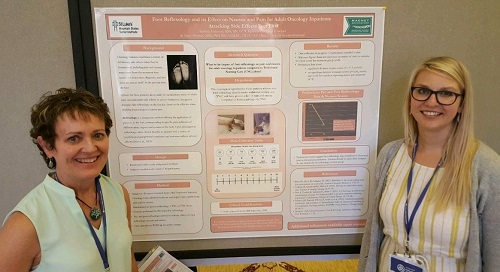
For Kristen Anderson, oncology nurse and unit based educator at St. Luke’s Boise, the program allowed her to further explore her interest in holistic medicine. Anderson works on the oncology unit at the Boise hospital and was interested in how foot reflexology could help reduce pain and nausea.
When she completed the year-long research fellowship her project was not yet complete, and she was invited to return for a second year as a senior fellow in the program. Early results suggest that foot reflexology may have a positive impact on pain management.
So far she has enrolled 28 adult inpatient oncology patients in her study, and her goal is 40. Patients in the reflexology group receive one session in addition to standard nursing care and are asked to complete a survey before and after the session.
“The patients’ feedback has been great,” she said. “There is usually an expression of ‘when are you coming back to do this again?’”
Anderson has presented her preliminary research findings at the American Holistic Nurses Conference and hopes that her work will eventually be included as part of routine care for the oncology patients in her care.
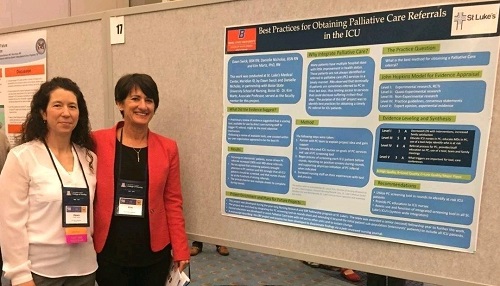
Dawn Swick joined the program when she was working as a staff nurse in St. Luke’s Meridian’s Intensive Care Unit. Swick, who is now a supervisor in the ICU, focused her evidence-based practice project on increasing nurse-driven palliative care referrals within her unit.
She implemented an objective work sheet, developed by a St. Luke’s Clinical Nurse Specialist, to screen patients for palliative care. The screening is done with each patient in Meridian’s ICU. That score is read during rounds each day and tells the physician and the palliative care team whether the patient needs their service.
Like Anderson, Swick stayed on to pursue her work for a second year. In that first year the referrals increased by 190 percent, but for Swick the project’s success is more about making palliative care part of the conversation and making it a routine part of the process.
“I just want people to understand how important this fellowship program is; to expand your knowledge and your practice,” Swick said. “It just takes your nursing practice up a step to be able to research and think about things more critically.”About The Author
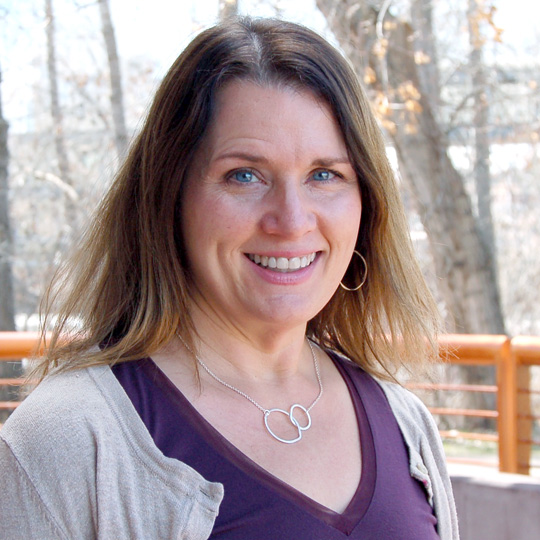
Chereen Langrill was formerly a communications coordinator for St. Luke’s Health System.

